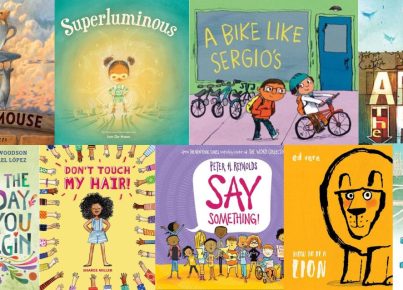Are you looking for middle school biology apps, tools, and resources that you can use with your students? If so, we have you covered. Check out our list below. Let us know if there are any that we missed.
CK-12– Helps students and teachers to improve elementary learning worldwide by making personal education tools available. Learn more than 5,000 math and science topics at a speed that suits you. Math topics include arithmetic, measurement, algebra, geometry, probability, statistics, trigonometry, analysis, and calculus. Science subjects include geography, life science, physical science, biology, chemistry, and physics. Other subjects include SAT exam prep, engineering, technology, astronomy, English, and history
The Human Body by Tinybop– The Human Body by Tinybop allows students to explore anatomy and biology through the lens of the human body. With a fully functioning circulatory, respiratory, and digestive system, students can explore the sounds of the heart, the gurgle of the guts, and more. In all, The Human Body by Tinybop covers eight bodily systems: muscular, skeletal, nervous, digestive, circulatory, respiratory, immune, and skin. Students can study interactive organ models, feed the body, watch sound vibrations travel through the ear canal, and learn new vocabulary with in-app text labels. The app also comes with a free handbook for teachers and parents full of discussion questions and additional facts.
Learn Genetics – Learn Genetics is a website designed to provide teachers with endless materials to teach about DNA. On this website, teachers can access multimedia pages written by scientists and researchers. The site includes content on topics such as genetics, evolution, metabolism, medicine, cell biology, neuroscience, and ecology. The interface is simple to use and easy to navigate.
Lifeliqe – This learning platform educates students with the use of 3-D models, augmented reality, and virtual reality. It includes subjects such as biology, culture, physics, paleontology, geometry, and so on. There are 620 preinstalled lesson plans for different subjects. The interface of this platform is quite easy to navigate. Lifeliqe is available as a website and app with its implementations on iPad and Windows, showing the most functionality.
Cogent Education – Cogent Education uses real-world problems or case studies to help students apply critical thinking skills and learn key concepts in the study of biology. Students work through simulations in the game to apply biological concepts and solve problems. Teachers can track student performance and help students improve.
myVRscope™– is an immersive microscopy Virtual Reality (VR) lab ecosystem, where students and faculty access microbiology content and conduct lab activities on-demand using VR. myVRscope™ leverages a virtual 3D photorealistic compound light microscope for learner activities and integrates the user experience with an Artificial Intelligence (AI) lab instructor- Dr. Beaker. The product was developed by the Immersive Learning Experience (ILX) team in the Innovation Center of Excellence (ICoE) at Adtalem Global Education- with the explicit design intent to create an ‘intelligent, immersive learning experience’ for on-campus and online learners alike that combines Virtual Reality (VR) and Artificial Intelligence (AI).
Molecular Workbench – Molecular Workbench is divided into two parts, namely the website and desktop app. The site is filled with simulations, which can be used to illustrate topics that have already been introduced in class. The website content is continually being updated, but it mostly contains lessons on physics, chemistry, biology, biotechnology, and nanotechnology.



